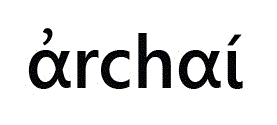Resumo em Inglês:
Abstract: In this essay on ancient architectural technologies, I propose to challenge the largely conventional idea of the transcendent origins of philosophy, that philosophy dawned only when the mind turned inside, away from the world grasped by the body and senses. By focusing on one premier episode in the history of western thinking - the emergence of Greek philosophical thought in the cosmic architecture of Anaximander of Miletus - I am arguing that the abstract, speculative, rationalising thinking characteristic of philosophy, is indeed rooted in practical activities, and emerges by means of them rather than in repudiation of them. The spirit of rational inquiry emerged from several factors but the contributing role of monumental architecture and building technologies has been vastly under-appreciated. In the process of figuring out how to build on an enormous scale that the eastern Greeks had never before tried, the architects discovered and revealed nature’s order in their thaumata, the very experience with which Aristotle claims that philosophy begins. Ancient architecture and building technologies were on display for decades with monumental temple building. In front of Anaximander and his community, a new vision of nature spawned that, surprisingly, humans could grasp and command. The building of these thaumata, these objects of wonder, offered proof of the human capacity to control nature, and opened a new vision of our human rational capacity to understand the world and our place in it.
